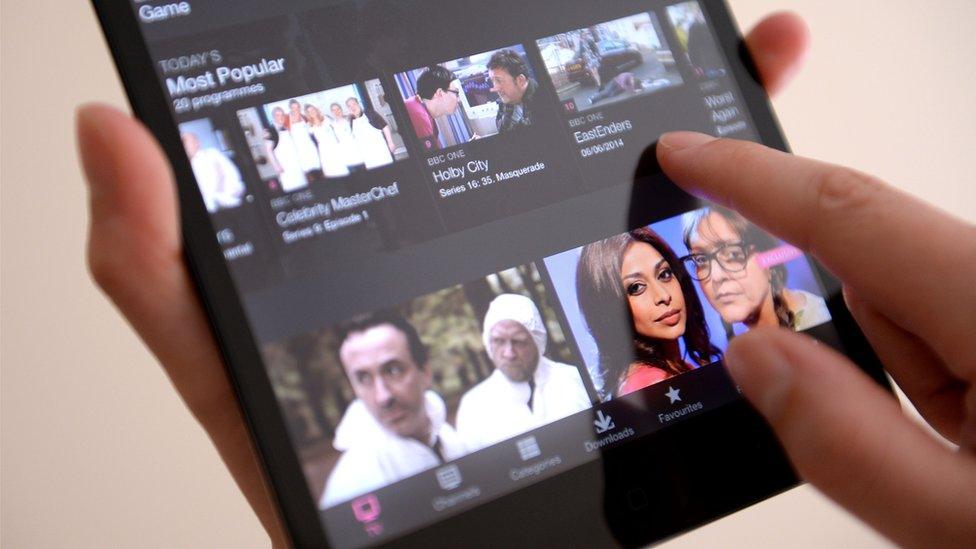TV licence changes: What young people think
- Published
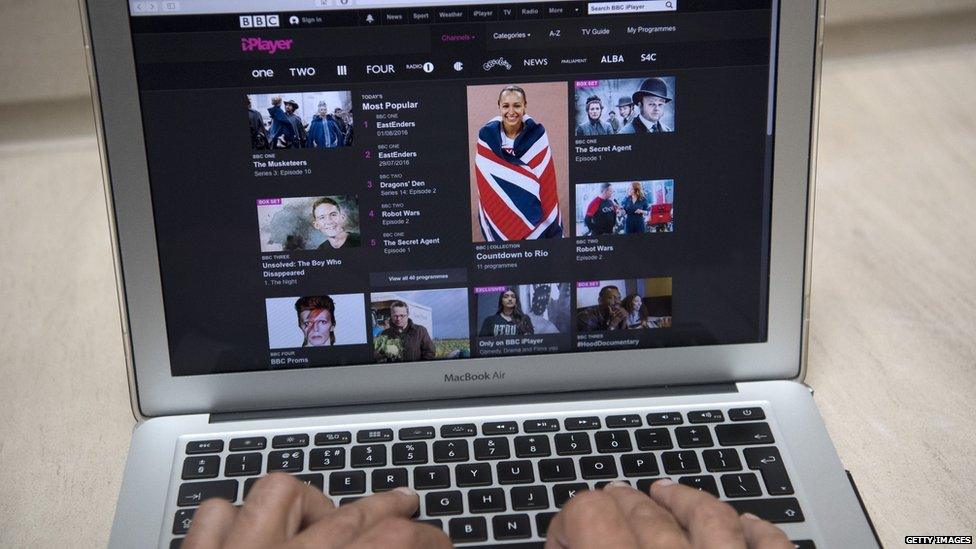
Audiences watching programmes on BBC iPlayer will have to buy a TV licence, external costing £145.50 from Thursday.
Announced in March, the then-culture secretary said changes were needed because a "loophole" was giving some people a "free ride".
Fewer than 2% of UK households only use catch-up services, TV Licensing says, but many who do are under 35.
Some of them told the BBC whether the new law will affect them.
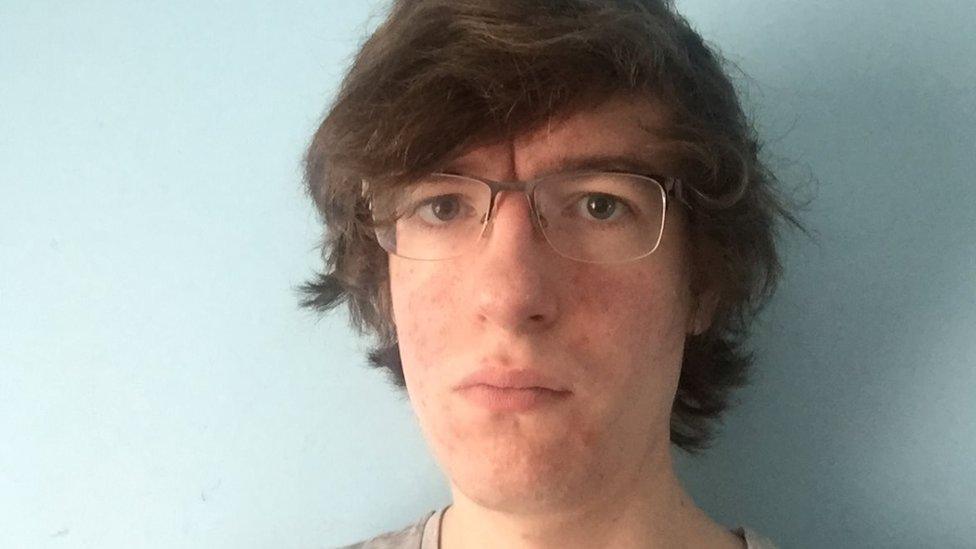
Chris Deyes says students shouldn't pay the TV licence if they're only watching a couple of shows a week on catch-up
'Why are we paying?'
Second-year psychology student Chris Deyes, 24, says he's not going to pay for a TV licence and will be covered by his parents' licence.
"Generally I watch catch-up, especially at university - but I rarely watch the BBC except for The Great British Bake Off, The Apprentice and Match Of The Day. It wouldn't make much difference to me if I stopped watching it really," he said.
For Chris, paying the same fee to watch these shows on iPlayer as those that watch a lot of live TV seems wrong.
"I don't know why we are paying for a TV licence if we are only watching a couple of hour-long shows once or twice a week," he said.
"I do understand that if everyone watches on demand then they wouldn't make any money. But it's quite a lot per person in halls when my accommodation costs £142 per week," he added.
"I don't see why something like the free over-75s licence can't be brought in for students. Why can't we be exempt from paying? It's only three years off."

'Discount for students'
Recent English literature and journalism graduate Sophie Moody, 22, from Suffolk, says she paid for a TV licence throughout her studies, and thinks the licence is worth the money overall.
"Even if you're watching TV on catch-up, you're still watching something that's been created with just as much work going into it," she added.
Sophie doesn't think the current licensing system is perfect though, because she thinks paying separately for their bedrooms in halls is unreasonable, and the content and archive on iPlayer needs improving.
"I do agree with giving a discount for people who are students too because I think it's unfair as we're studying," she added.
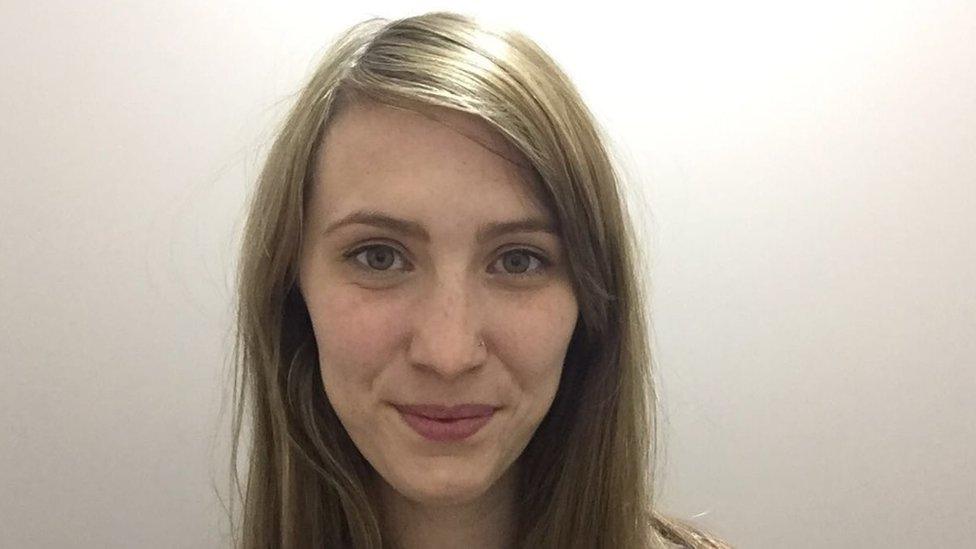
Ruth said she thinks young people will feel cut off from watching programmes because they won't be able to afford a TV licence
'A lot to pay'
"It does seem a bit steep to make everyone pay the full fee. There's no way most students will be able to afford that... when they're living on tinned beans. People will just stream things for free," said 26-year-old Ruth Gaukrodger, an editorial assistant from London.
Ruth said after graduating university she got a TV and bought a licence, but still watches a lot of catch-up television on her laptop.
"Sometimes you sit down to watch something and it's not at the beginning, or you can watch iPlayer in the bath or in bed," she added.
"Students are aware of the cost of producing these shows, but for them it's a lot to pay for content when you have clear alternatives. A lot of the BBC shows appeal to a fairly older demographic too."
She added: "I wouldn't have paid for the TV licence when I was a student, I would have stopped using iPlayer and paid for Netflix because it's cheaper and has a lot of US dramas, which is what I watched a lot of at university.
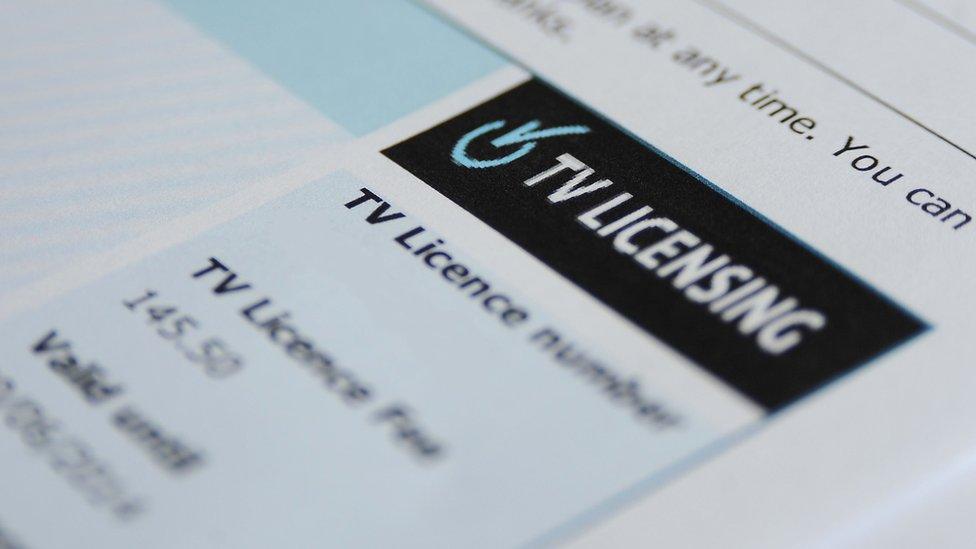
TV Licensing says the new law will also apply if you access BBC iPlayer through another provider
'It's pretty reasonable'
"I can see how some people are frustrated that they now have to pay for it, but a lot of people are watching TV online now so you've got to change your pricing to go with it," said junior doctor Adam Jones, 26, from Oxford.
He said he hardly ever watches live TV in his home except for the Six Nations and when he does watch television, he mostly watches documentaries and period dramas on catch-up.
"If you compare the monthly cost of a TV licence with the cost of going to the cinema or going out to the pub once a month, it's pretty reasonable," he said.
"I am watching all this stuff anyway, so somebody's got to pay for it."
But Adam thinks it will be difficult to 'police' the new system.
"How are you going to prove that people have been watching stuff after it's been on, if it's an online service that doesn't track exactly who's logging in and using it?" he said.
"At the end of the day if people don't want to pay the TV licence they won't, they'll figure out a way of doing it."

A TV Licensing spokesman said: "We know the vast majority of people are law abiding and would anticipate those who need a licence for the first time will buy one.
"We have a range of enforcement techniques which we will use, and these have already allowed us to prosecute people who watch on a range of devices, not just TVs."
- Published1 September 2016

- Published1 September 2016
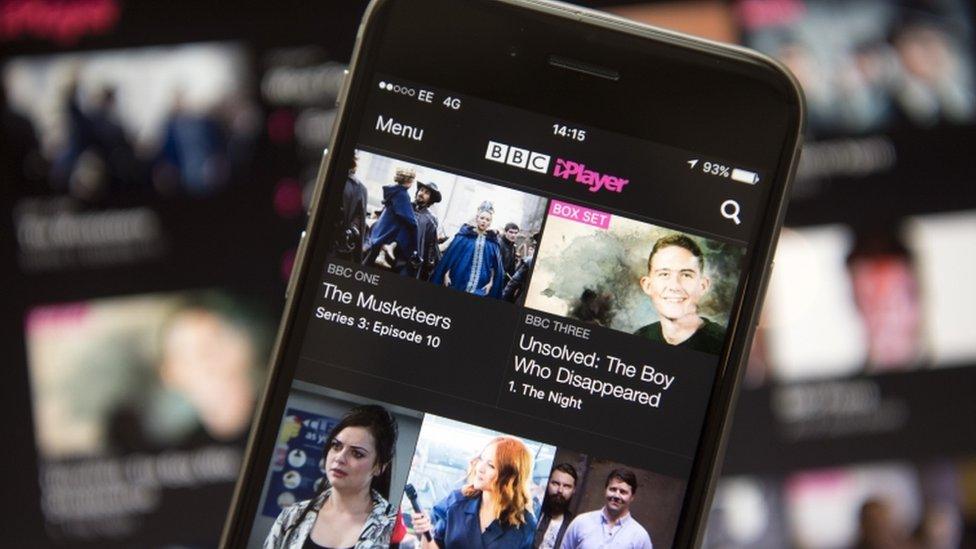
- Published2 March 2016
